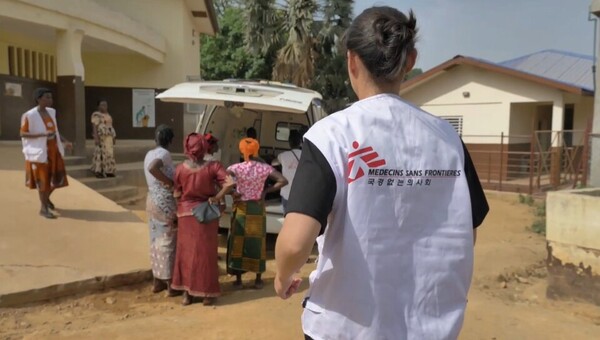Concerns are growing as global funds that support countries with weak healthcare systems continue to decline.
Doctors Without Borders, also known as Médecins Sans Frontières (MSF), said Friday that efforts to end the world's three major infectious diseases -- AIDS, tuberculosis, and malaria -- are in crisis, urging the Korean government to increase support.

The U.S., the largest donor to global health programs, announced in January that it would halt all international aid. As a result, approximately $3 billion -- half of the $6 billion pledged to the Global Fund to Fight AIDS, Tuberculosis, and Malaria for the period 2023–2025 -- has not been delivered.
Major donor countries, including Korea, have yet to announce specific commitments regarding the next three-year funding and implementation cycle, scheduled for November.
These global funds have played a pivotal role in supporting fragile health systems in Africa, Asia, Latin America, and other regions. Mobilized resources are used to purchase medicines and diagnostic equipment, pay health workers, and support disease prevention activities.
Through these programs, MSF has treated tens of thousands of HIV patients, tuberculosis patients, and more than 3 million malaria patients each year. HIV is the virus that causes AIDS. In particular, the newly developed injectable pre-exposure prophylaxis (PrEP) has emerged as an effective preventive measure for high-risk groups.
However, with the reduction in U.S. international aid, Malawi's national HIV response program, including PrEP, has been put on hold. Currently, the HIV prevalence rate among sex workers in Malawi is around 60 percent.
Doctors Without Borders warned that unless sufficient funding and implementation commitments are secured within the coming weeks and months, “decades of progress in reducing disease and mortality could be lost.”
“The fight against HIV, tuberculosis, and malaria is a challenge of our generation facing the entire world,” it said. “On behalf of the global community severely impacted by recent funding cuts, we urge the Korean government to continue its essential support for these programs.”
Antonio Flores, Senior Advisor for HIV and Tuberculosis at Doctors Without Borders, stated, “The repercussions of funding cuts are already evident. In Honduras, sudden reductions halted HIV prevention and treatment programs under the President's Emergency Plan for AIDS Relief (PEPFAR).”
He continued, “Patients lost access to PrEP overnight, and healthcare workers lost their jobs. We are now witnessing an increase in patients returning to hospitals with severe opportunistic infections.”
Opportunistic infections occur when the immune system is weakened and can be life-threatening if left untreated in severe cases.

